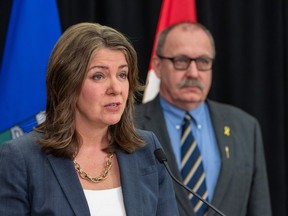
Anyone who knows me well is aware that I am not much of a dancer.
I’ll try occasionally, but for whatever reason, I was not born with a strong sense of rhythm.
Picture the ubiquitous wedding guest at the back of the dance floor, toe-tapping and head-bopping slightly out of sync while trying not to look self-conscious.
This past week gave us another turn of this political standard.
The step forward was the province’s announcement that it is lowering the interest rate at which money is lent to local authorities for their infrastructure projects. Municipalities already borrow capital funds at favourable rates, but this move will lower them further starting in the spring of 2025.
It’s not exactly a game-changer, but is still expected to collectively save municipalities about $7 million in 2025-2026 and about $12 million the year after, the province says.
As well, the city will need to rent a bigger space to hand-count votes, and is also now required to use separate ballots and ballot boxes for the mayoral, councillor and school board elections. In the past, those choices could all be stuffed onto one ballot card when the automated tabulation technology was used.
(Calgary, Red Deer and other places have also projected higher costs due to Bill 20’s new requirements.)
The province should be reimbursing municipalities for the forced move to hand-counting. If the UCP wants to make policy from the bottom of a tinfoil hat, there’s nothing to stop them, but city taxpayers shouldn’t have to pay for it.

Who should control collections?
This is typically how the intergovernmental gyrations have gone of late. But then Premier Danielle Smith pulled out a new, seemingly spontaneous move last week when she mused about the possibility of the province taking over tax collection duties from municipalities.
At this point, it’s not clear if it’s a forward or backward step, or if the premier was even serious.
In theory, such a change could be a help to municipalities’ financial and reputational capital.
Each year, cities and towns bear the full brunt of public outrage when property tax notices go out, even though the Alberta government takes a big chunk of the revenue. If the province became responsible for collection, some of that outrage would presumably transfer to them, while municipalities would save money by reducing staff, software and so on.
(The assumption here is that the province wouldn’t charge them to take over the service.)
There is a certain logic to having one property tax collection agency rather than 300-plus.
However, this also could be one of those scenarios where municipalities should be careful what they wish for.
Firstly, the idea should be given no more credibility than a trial balloon that could pop at any moment once the province discovers how much expense and hassle is actually involved.
In Edmonton’s case, such a move could potentially open up $400 million in tax room annually, which would be a much more revolutionary change than having the province take over tax collection duties. Sadly, I’m not aware of any real movement on that concept since Smith uttered the words a couple of years ago. Perhaps her new tax collection idea is being floated as an inferior substitute.
Either way, municipalities should be careful before rushing to relinquish that collection power.
Property tax is their one major source of revenue. If cities and towns give up cash flow control, how long do you think it will take before the province feels the political temptation to interfere on how much is collected? If Edmonton’s council approves another big increase — in part due to provincial squeezing and downloading — how certain can we be that the premier’s office won’t step in to play saviour?
It’s sometimes a short walk from being a service provider to a pit boss.
(Moreover, the UCP government is refusing to pay its full share of municipal property taxes these days, nor is it forcing oil and gas companies to pay their bills, so how can they be trusted not to continue or expand these exemptions?)
There is no question Alberta’s municipalities need to find a new rhythm to their finances, but they should be wary of a partner that continually dances to their own tune.